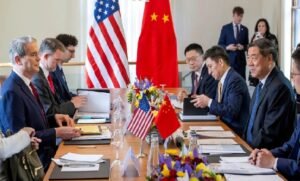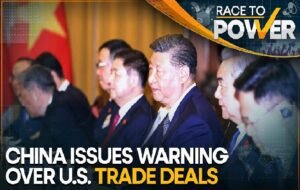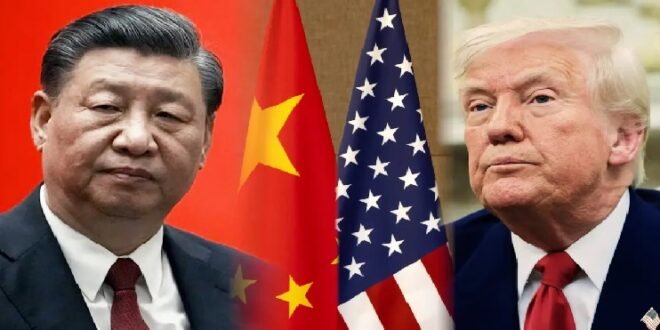24-10-2025
WASHINGTON/ BEIJING: US is preparing to investigate China’s adherence to the terms of a trade deal signed during President Donald Trump’s first term, the New York Times reported on Thursday citing a person familiar.  The Section 301 probe could be announced as early as Friday, the Times reported, and could result in additional tariffs between the US and China during a period of heightened trade tensions before a meeting next week between Trump and China’s Xi Jinping. Trade tensions between the US and China, the world’s two biggest economies, flared in recent weeks after months of relative calm. Trump imposed additional duties of 100% on China that are due to take effect on November 1 after China announced export controls on nearly all rare earths.
The Section 301 probe could be announced as early as Friday, the Times reported, and could result in additional tariffs between the US and China during a period of heightened trade tensions before a meeting next week between Trump and China’s Xi Jinping. Trade tensions between the US and China, the world’s two biggest economies, flared in recent weeks after months of relative calm. Trump imposed additional duties of 100% on China that are due to take effect on November 1 after China announced export controls on nearly all rare earths.
China’s Communist Party elite vowed on Thursday to build a modern industrial system and make more efforts to achieve technological self-reliance, moves it sees as key to bolstering its position in its intensifying rivalry with the United States.
As expected, the Party’s Central Committee also promised more efforts to expand domestic demand and improve people’s livelihoods, long-standing goals that in recent years have been little more than an afterthought as China prioritized manufacturing and investment without giving many details.
In addition to mapping out economic and other policy goals for the next five years, Party leaders during the four-day closed door meeting, known as a plenum, also replaced 11 members, the highest personnel turnover since 2017 amid an ongoing military corruption purge.
China’s forceful industrial policies have built sophisticated domestic supply chains and brought it to global dominance in many sectors. They have given Beijing confidence in its trade war with the US, whose President Donald Trump is threatening triple-digit tariffs.
The full five-year plan will only be released at a parliamentary meeting in March, but the post-plenum outline from state news agency Xinhua hinted at policy continuity, which concerns economists who have been calling for a shift towards a growth model that relies more on household demand.
 Building “a modern industrial system with advanced manufacturing as the backbone” and accelerating “high-level scientific and technological self-reliance” were listed ahead of the development of “a strong domestic market,” the communique showed.
Building “a modern industrial system with advanced manufacturing as the backbone” and accelerating “high-level scientific and technological self-reliance” were listed ahead of the development of “a strong domestic market,” the communique showed.
Capital Economics analyst Julian Evans-Pritchard said the readout sent the message that manufacturing remains central to ambitions of national strength and security and that Beijing only pays “lip-service” to the idea of boosting consumption.
“There is still an unresolved tension between the leadership’s purported desire to boost consumption and its goal of shoring up the size of its manufacturing sector,” he said.
“The leadership will have to choose one or the other. Today’s communique leaves little doubt over which way they are leaning.”
China’s economic growth slowed to its weakest pace in a year in the third quarter as fragile domestic demand left it heavily reliant on its exporting factories despite US tariffs, stoking concerns about deepening structural imbalances.
Beijing has also achieved a near-monopoly in rare earths production, indispensable to global defence and semiconductor industries, and has major leverage in expected trade talks between Trump and Chinese President Xi Jinping this month but its policies have also led to rampant overcapacity, and fuelled deflationary pressures.
Low wages, feeble social welfare benefits and limited worker confidence in holding on to their jobs, form key pillars in manufacturers’ export competitiveness. This keeps domestic demand subdued and producers’ dependent on other countries’ spending power, fanning trade tensions. (Int’l News Desk)
 Pressmediaofindia
Pressmediaofindia




